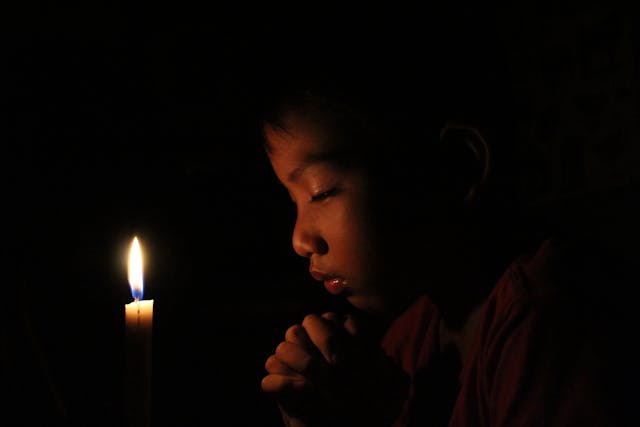The Science of Belief: How Faith Impacts Mental and Physical Health
Faith has been a part of human life for thousands of years. Whether it comes through religion, spirituality, or a deep personal belief system, many people find comfort, hope, and meaning in their faith. But beyond the emotional support it offers, scientists are discovering that belief can also have powerful effects on both mental and physical health.

What Is Faith, and Why Does It Matter?
Faith can mean many things. For some, it’s belief in a higher power. For others, it’s trust in a purpose, the universe, or even a personal set of values. No matter how it's defined, faith often provides people with a sense of connection, purpose, and strength during difficult times.
Researchers are now paying closer attention to how belief systems influence health outcomes—and the results are fascinating.
Mental Health Benefits of Faith
1. Lower Stress and Anxiety
People with strong faith often report lower levels of stress and anxiety. Prayer, meditation, or attending religious services can create feelings of peace and calm. Faith may also help people feel more in control, even when life is uncertain.
2. Coping with Grief and Trauma
When facing loss, illness, or trauma, belief can help people process pain and move forward. It gives them a way to find meaning in suffering, which can be a powerful tool for healing.
3. Improved Mood and Resilience
Studies show that people who are religious or spiritual often have higher levels of optimism and overall life satisfaction. They tend to bounce back from setbacks more quickly and feel more supported through life’s ups and downs.
Physical Health and the Role of Belief
1. Better Heart Health
Some research links regular religious practices to lower blood pressure, reduced heart disease risk, and even longer life. These benefits may come from healthier behaviors and reduced stress, both of which protect the heart.
2. Stronger Immune System
Faith-related activities like prayer, meditation, or group worship can reduce stress hormones in the body, which helps the immune system work better. People of faith may also be more likely to follow healthy habits, like not smoking or drinking excessively.
3. Pain Management
Belief can influence how people experience pain. For example, those with strong spiritual beliefs often report lower levels of chronic pain and a greater ability to cope with it. Some researchers think this is due to the brain’s ability to use belief as a way to change how pain signals are processed.
Community and Connection
A big part of faith is community. Being part of a church, mosque, temple, or spiritual group gives people a strong support system. This social connection reduces loneliness, which is closely linked to better mental and physical health.
Faith communities often help with emotional support, practical help (like meals or rides), and a sense of belonging—all of which are good for overall well-being.
Mind-Body Connection
Belief taps into the powerful link between the mind and body. When we believe in something deeply, our thoughts and emotions can actually change our biology. For example, studies show that regular prayer or meditation can calm the nervous system, slow heart rate, and even change brain activity.
It’s not just about what you believe—it’s about how that belief makes you feel and act. That emotional shift can help reduce stress, boost happiness, and improve how the body responds to challenges.

It’s Not One-Size-Fits-All
Faith isn’t a magic cure, and it’s not the same for everyone. Some people find strength in traditional religion. Others connect through nature, art, or a personal spiritual practice. What matters most is whether the belief brings comfort, hope, and meaning.
For people who don’t identify as religious, similar health benefits can come from mindfulness, gratitude, or a strong personal philosophy. The key is having something to believe in—a source of purpose that helps you navigate life’s challenges.
Final Thoughts
Science is still uncovering all the ways belief shapes our health, but one thing is clear: faith—whether religious or spiritual—can be a powerful ally for both the mind and body. It helps people handle stress, connect with others, and live with greater purpose.
You don’t need to follow a specific religion to experience the benefits. What matters is finding what gives you peace, meaning, and strength. Because sometimes, believing in something bigger than yourself is exactly what the heart—and body—needs.












